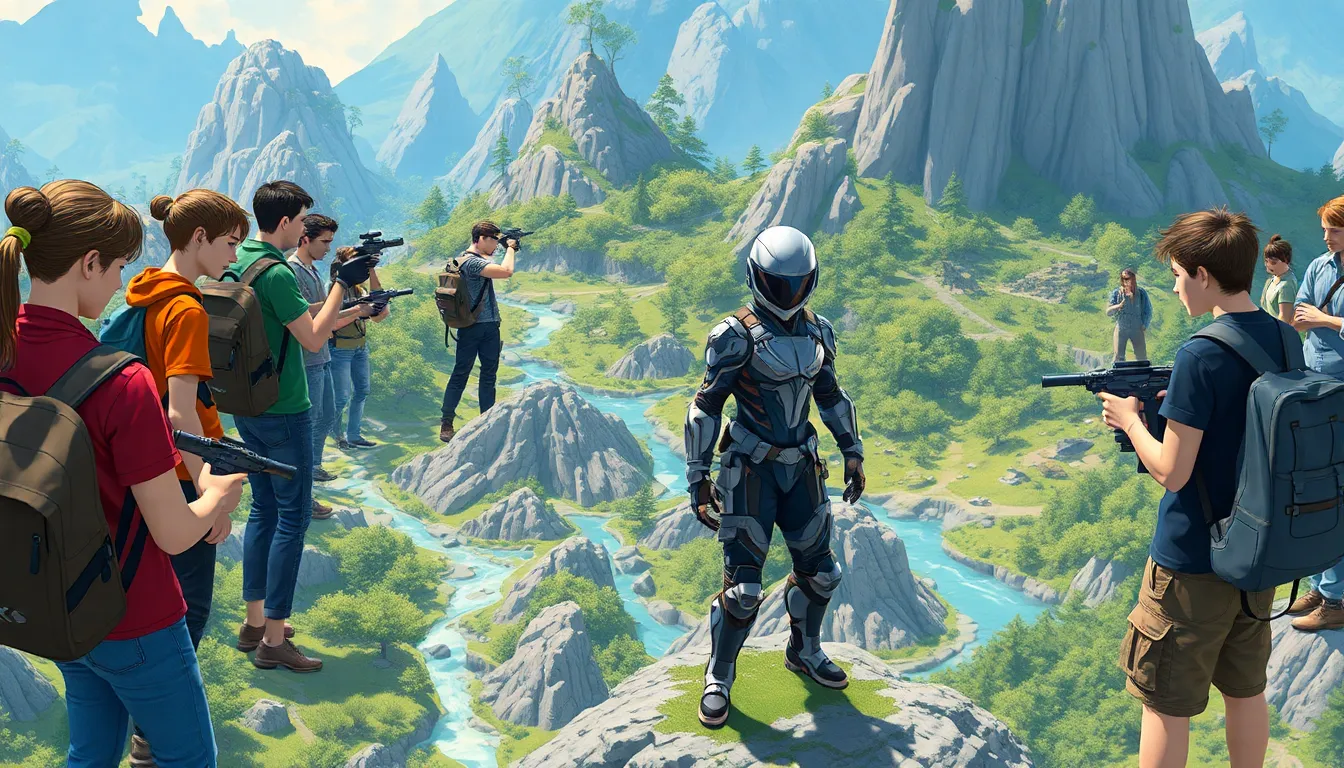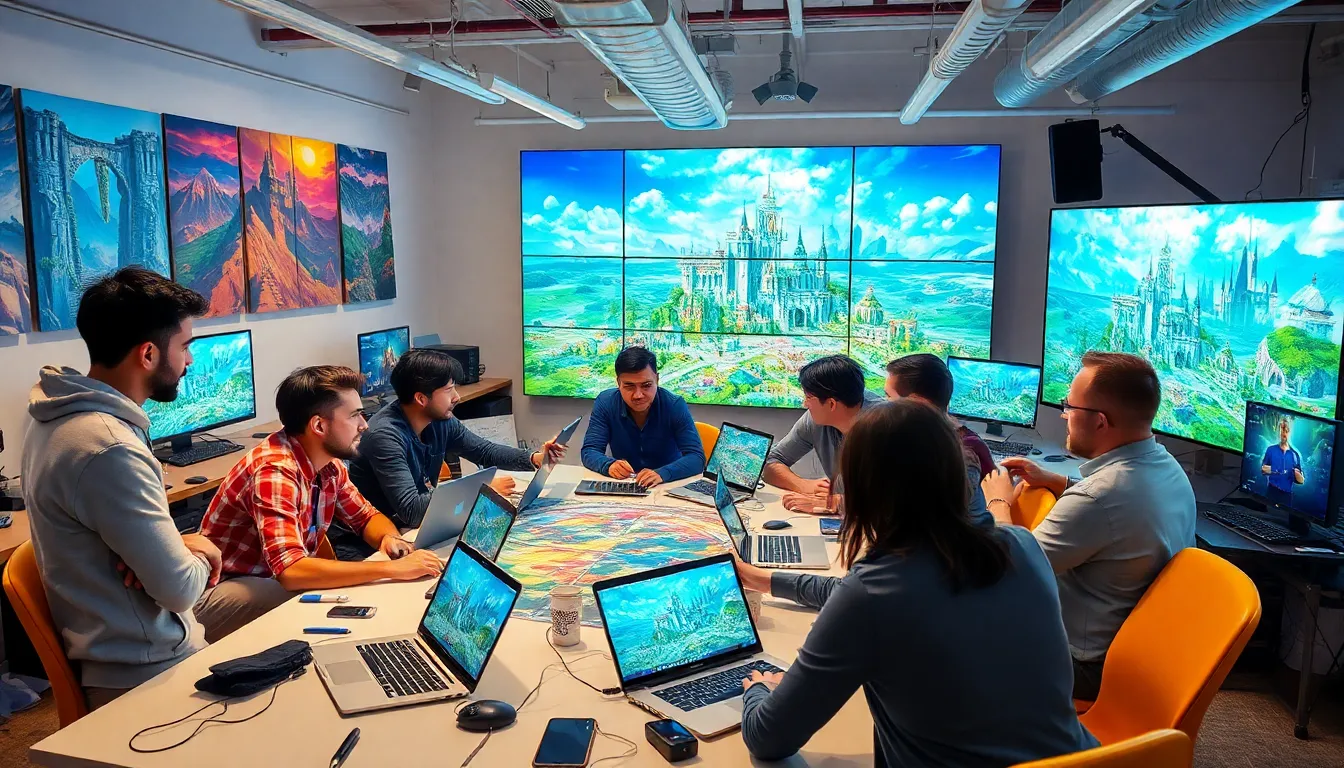Imagine crafting entire universes with just a few clicks. World building games invite players to unleash their creativity and design intricate realms filled with unique characters, landscapes, and stories. Whether it’s a bustling medieval kingdom or a futuristic city on Mars, these games let imaginations run wild, making them irresistible for dreamers and strategists alike.
World Building Game
A world building game allows players to craft immersive environments. These games provide tools for designing vast landscapes, intricate cities, and complex societies. Players often shape narratives and character arcs, giving depth to their creations. Various genres, including simulation and strategy, facilitate this imaginative process.
Many games feature customizable elements that support unique designs. Users can manipulate terrain, build structures, and populate their worlds with diverse inhabitants. Engaging gameplay mechanics encourage exploration and interaction, enhancing the overall experience. Popular titles in this genre include Minecraft, SimCity, and Terraria, which exemplify creative freedom.
These games attract varied audiences, including casual players and dedicated creators. Accessibility plays a significant role in their appeal, often catering to different skill levels. Community engagement through online forums and social media fosters collaboration, allowing players to share their creations.
Players frequently find inspiration from different cultures, history, and fantasy literature. The blending of these influences results in unique universes that reflect individual creativity. Overall, the essence of a world building game lies in its capacity to inspire innovative thought and foster storytelling through gameplay.
Key Elements of World Building Games

World-building games incorporate various key elements that enhance the creative experience. These elements include environment design and character development, which contribute to the depth and immersion of the gameplay.
Environment Design
Environment design serves as the foundation for creating believable worlds. Players utilize tools to craft landscapes, city layouts, and ecosystems that reflect their imagination. Specific elements like terrain types and climate can significantly impact gameplay mechanics. Customizable assets allow for unique structures and biomes, enhancing visual appeal. Incorporating features such as rivers, mountains, and forests also enriches exploration opportunities. Successful titles like Minecraft exemplify environment design that captivates players and invites them to engage with their surroundings.
Character Development
Character development adds depth to the narratives within world-building games. Players create intricate backgrounds, personalities, and motivations for their characters, fostering emotional connections. Unique traits and abilities can enhance gameplay and influence interactions within the game world. Designing compelling story arcs encourages players to invest in their characters’ journeys. Games often incorporate relationships among characters that shape overall narratives. Titles like The Sims illustrate how robust character development enhances player engagement and storytelling within vast, crafted universes.
Popular World Building Games
Various world-building games capture the imagination. They offer players tools to create intricate and immersive environments.
Minecraft
Minecraft stands out for its limitless possibilities. Players construct vast worlds using blocks and resources, allowing creativity to flourish. The game encourages exploration and interaction, as users traverse landscapes filled with unique biomes. Multiplayer options enhance collaboration, enabling friends to build together in real-time. Frequent updates introduce new materials and mechanics, keeping the gameplay fresh and engaging. Community mods and textures further expand creative horizons, creating custom experiences for each player.
The Simulations Series
The Simulations series, including titles like The Sims, fosters rich storytelling and character development. Players design homes and neighborhoods, shaping the lives of their characters. Emphasis on relationships creates emotional depth, drawing users into the narratives they build. Each expansion adds new features, allowing for diverse gameplay experiences. Custom characters with unique traits enrich storytelling options. Players share their creations through online platforms, facilitating community interaction and collaboration. Engaging mechanics ensure that every decision impacts the simulated world, enhancing immersion and player investment.
Tips for Creating Your Own World
Creating an engaging world in a world-building game involves careful planning and creative thought. These tips help guide the design process effectively.
Defining Rules and Mechanics
Establishing clear rules enhances gameplay consistency. Players rely on these guidelines to understand how interactions work, ensuring fun experiences. Mechanics should complement the world’s theme, whether it’s combat systems for action-packed environments or crafting systems for resource-driven settings. Customizable options enable individual creativity, allowing players to modify rules as desired. Testing different mechanics helps balance gameplay, leading to a smoother experience and encouraging user investment.
Engaging the Player
Fostering player engagement is crucial for a successful world. Crafting compelling narratives captures players’ attention and invites them to explore further. Including quests and challenges encourages interaction with the environment and related characters. Developing intriguing characters with distinct personalities adds depth to the experience and motivates players to invest time in their stories. Tours or guides provide insights into the world, increasing familiarity and promoting exploration. Regular updates or community feedback can refine the gameplay, ensuring the world evolves to maintain interest and excitement.
Conclusion
World-building games offer an unparalleled opportunity for creativity and exploration. They empower players to craft intricate universes that reflect their unique visions. With tools that enable detailed environment design and character development, these games engage both casual gamers and dedicated creators alike.
The vibrant communities surrounding popular titles foster collaboration and inspiration, enhancing the overall experience. By encouraging players to share their creations and learn from one another, these games cultivate a rich tapestry of imaginative storytelling. As players continue to innovate and expand their worlds, the potential for new narratives and experiences remains limitless.

